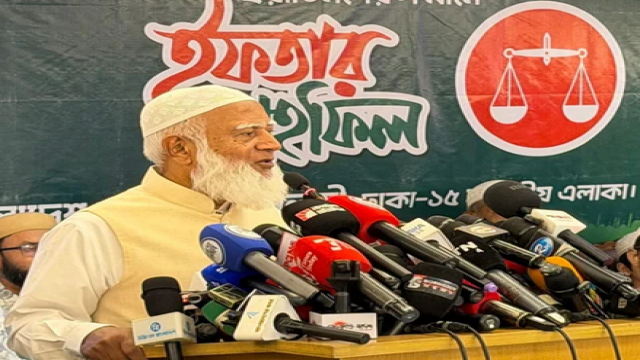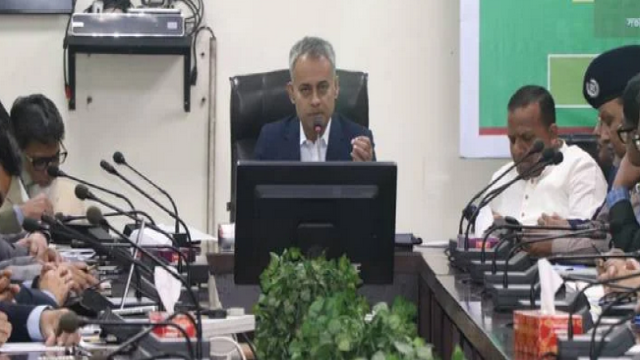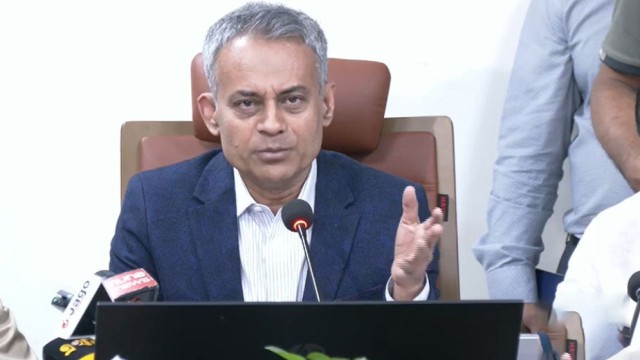London, UK, Jan 15, (V7N) — A significant turning point in the UK Labour Party’s stance on scandal and accountability has emerged with the resignation of Tulip Siddiq, the country’s Minister for Economic Affairs. The political upheaval comes after mounting allegations of financial corruption, ties to a former prime minister in Bangladesh, and accusations of potential conflicts of interest, which have shaken the Labour leadership. Siddiq’s departure is seen as a powerful statement on the party's commitment to integrity, as it confronts issues of public trust head-on.
On Tuesday, Siddiq, who has been the economic affairs minister responsible for tackling financial crime, formally submitted her resignation to Prime Minister Keir Starmer. The decision followed intense public scrutiny, sparked by reports suggesting her family’s controversial ties to former Bangladesh Prime Minister Sheikh Hasina and accusations of financial mismanagement.
Siddiq, who is the daughter of Sheikh Hasina’s sister, found herself at the center of controversy after reports linked her to an offshore company and questioned her financial dealings. Additionally, concerns were raised about the use of properties linked to figures with ties to the ruling Awami League party of Bangladesh, including allegations of illegal enrichment from infrastructure projects.
Despite her denials of any wrongdoing, Siddiq faced increasing pressure from anti-corruption watchdogs and opposition parties. The UK Anti-Corruption Coalition, a prominent watchdog, had recently called for her resignation, highlighting the conflict of interest posed by her family ties to a former foreign regime and the allegations of corruption and misuse of political influence.
In her resignation letter, Siddiq expressed gratitude to the Prime Minister for his continued trust, despite the controversies surrounding her. She emphasized that, after a detailed review by an independent advisor, no evidence was found to suggest she had violated any ministry guidelines or laws. However, she acknowledged that the ongoing investigations and the political climate surrounding her position were proving to be a distraction, thus hindering her ability to serve effectively.
"I have always worked with transparency, and I am confident I will continue to do so in the future. However, it is clear that my continuing in office may now impede the work of the government," she wrote in the resignation letter, signaling a shift in her priorities and a commitment to ensuring her family's actions do not overshadow the Labour Party’s agenda.
Political Fallout and Global Implications
This resignation marks the second high-profile resignation from Starmer’s cabinet in less than two months, following another minister’s exit amid similar allegations of misconduct. The resignations reflect the growing sensitivity within the Labour Party on issues of corruption, particularly involving foreign governments and the financial sector.
The scandal has far-reaching implications, not just within the UK, but also in Bangladesh, where Siddiq's connections to the former prime minister have sparked intense political debates. Opposition figures, including prominent political leaders in Bangladesh, have called for further investigations into Siddiq’s finances, urging authorities to ensure that any illicit financial transactions are fully accounted for.
In the UK, critics of Siddiq, particularly from the Conservative Party, have accused Starmer of turning a blind eye to corruption, despite the growing evidence against his cabinet member. The resignation of Siddiq may, however, be seen as an effort by Starmer to distance himself from the growing controversies surrounding his government, sending a message of accountability and transparency.
The Road Ahead for the Labour Party
The Labour Party now faces a critical moment in its political future. Starmer must navigate the fallout from Siddiq's resignation and reassure the public that his administration is committed to maintaining high ethical standards, particularly as the next general election looms. Many expect this scandal to become a central issue during the upcoming political debates, with opposition parties seizing the opportunity to criticize the party’s handling of integrity issues.
In the coming weeks, more details are likely to emerge regarding Siddiq's financial dealings, as investigations continue into her family's connections with foreign political figures and potential financial misconduct. While she has resigned from her post, the political and legal ramifications of her actions may still have a lasting impact on the UK political landscape.
END/SMA/NYC/AJ/






























Comment: